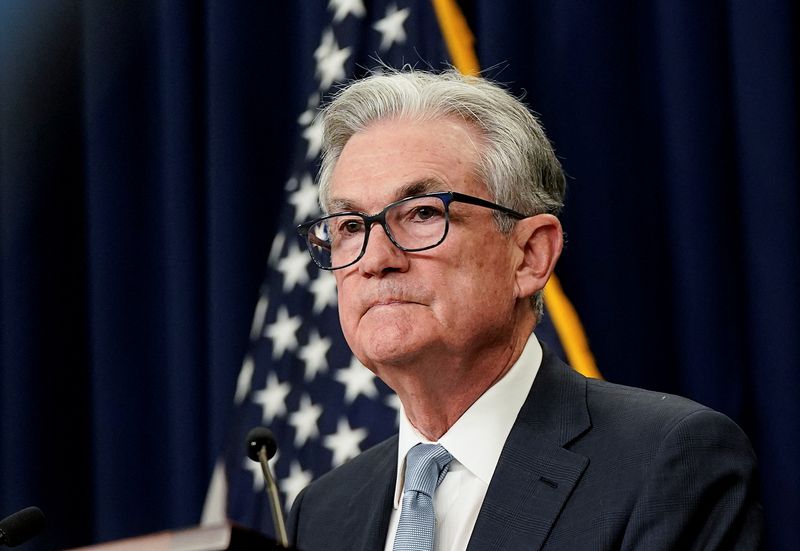(Reuters) - The development of an official digital version of the U.S. dollar could help safeguard its global dominance as other countries issue their own, Fed Chair Jerome Powell said on Friday, weighing in with generally positive remarks on a hot-button topic at the central bank that has left policymakers divided.
"A U.S. CBDC (central bank digital currency) could... potentially help maintain the dollar's international standing," Powell said in introductory remarks to a research conference held by the central bank on the international roles of the dollar.
The Fed has just finished a four-month public consultation period soliciting opinions on the idea of a digital dollar. Fed Vice Chair Lael Brainard has emerged as a key supporter while Fed Governor Chris Waller has made the case against.
"As we consider feedback...we will be thinking not just about the current state of the world, but also how the global financial system might evolve over the next 5 to 10 years," Powell added.
Ten countries have already launched central bank digital currencies and another 105 countries are exploring the option, according to the Atlantic Council, leading to fears the dollar could lose some of its dominance to China.
The dollar remains underpinned by key fundamentals, including a commitment to transparency, the rule of law and the full independence of the Fed, Powell noted.

In addition, the Fed's commitment to its price stability mandate contributes to widespread confidence in the dollar as a store of value, Powell said.
"To that end my colleagues and I are acutely focused on returning inflation to our 2% objective," Powell said. The Fed earlier this week delivered its largest interest rate increase in more than a quarter of a century as it tries to stem a surge in inflation.